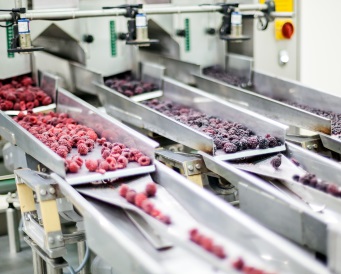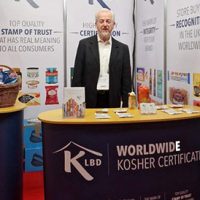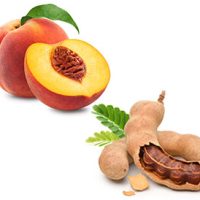The Natural & Organics Show (NOPEX) will be taking centre stage once more at…

The Importance of Vigilance Against Cross-Contamination
The common food factory faces many challenges to meet modern food standards. One of the most common issues – that we here at KLBD Kosher monitor closely – is that of cross contamination.
Cross contamination is one of the most common causes of food poisoning, allergic reactions and people accidentally eating products which do not comply with the strictures of their diet. This is a real issue that all food producers face daily. Why is it such an important issue to avoid in a food environment? What are the most efficient ways to avoid cross contamination?
 The Importance
The Importance
Prevention of cross contamination is an integral aspect of food production. One facet is the transparency regarding the ingredients that are utilised in the products throughout the supply chain. Today this is an increasing concern of the consumer. Consumers are constantly seeking the most plain-speaking and transparent food products, which detail the exact contents and even the process by which the food inside was produced. Hence we see such buzz phrases as ‘from gate to plate’, ‘bar to bean’, and in Dutch ‘Bron tot Bord’ (‘from source to plate’).
The growing market-driven nature of production transparency means that it has become a necessity to gain the appropriate certification to prove your status. Gaining these certifications – covering allergens, kosher and other necessary dietary concerns – is the best way to generate customer loyalty in today’s fast paced food market.
Avoiding Cross Contamination
So, how do you avoid cross contamination throughout your manufacturing process? There are a number of steps that, when put into practice, should prevent the major contamination issues. This includes:
- Raw meat and vegetables should be segregated; never touching other foods.
- All staff should wash their hands thoroughly at regular intervals, especially important after using the restroom and handling raw food. Paper towels and hand dryers should be used to dry hands – avoid hand towels as these can collect bacteria.
- Worktops should be cleaned down every day using hot water and soap.
- Wash vegetables and fruit thoroughly to remove outside contaminants. In kosher certification there are very detailed rules covering this area not least checking for bugs and insects.
- If workers are ill, they should not enter the production area.
These steps are all basic ways to help avoid contamination through germs and bacteria. However, to avoid cross contamination of ingredients it is best to prepare certain foods or ingredients in separate areas of your factory.
Also, if you handle potentially sensitive ingredients (such as nuts) in the same factory as other products, this needs to be clearly labelled on products. However, the precautions taken should prevent this from being an issue for the transparency of your products and their ingredients. Nevertheless, informing the consumer of the potential for contamination is an important part of your company maintaining its reputation.
With KLBD Kosher Certification, your consumers are guaranteed to buy from a reliable source that ensures all packaged food has completely followed all kosher and kosher-relevant cross-contamination requirements. For more information on how you can kosher certify your products, you can get in touch by giving KLBD Kosher a call on +44 (0) 20 8343 6255.




